2024 SDG 1 English
- 1.2.1 Low income students receiving financial aid
- 1.3.1 Bottom financial quintile admission target
- 1.3.2 Bottom financial quintile student success
- 1.3.3 Low-income student support
- 1.3.4 Bottom financial quintile student support
- 1.3.5 Low or lower-middle income countries student support
- 1.4.1 Local start-up assistance
- 1.4.2 Local start-up financial assistance
- 1.4.3 Programmes for services access
- 1.4.4 Policy addressing poverty
1.2.1 Low income students receiving financial aid
The number of students receiving financial aid ÷ the number of students in NTNU.
In 2023, 1,060 undergraduates, master’s, and doctoral students in NTNU applied for financial aid. In 2023, there were 14,080 undergraduates, master’s, and doctoral students in NTNU, and the proportion of students receiving financial aid was 7.53%.
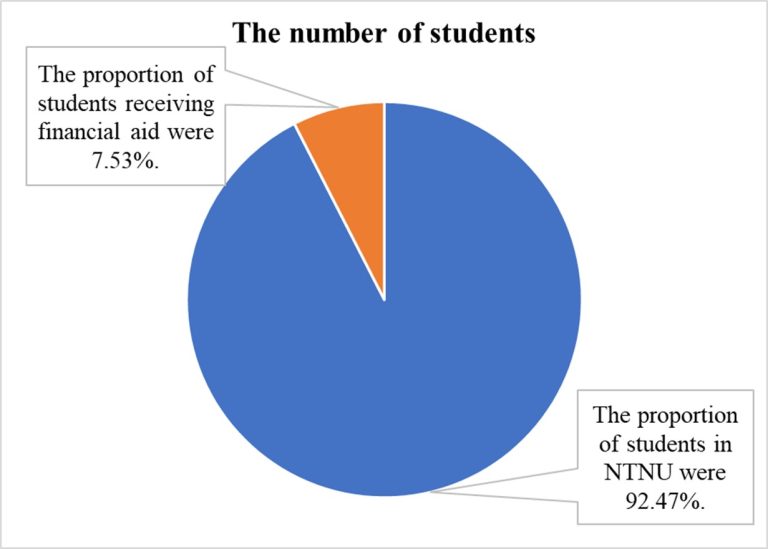
1.3.1 Bottom financial quintile admission target
The University has established 13 pathways to ensure admission opportunities for economically or culturally disadvantaged students. That includes the ‘Morning Light Dual Pathways Admission’ scheme, which provides priority admission, general admission options such as the Stars Program, and application-based admission. At least 200 students from economically or culturally disadvantaged backgrounds are admitted each year. To encourage these students to participate in the second-stage selection exams, the University offers fee waivers for registration and subsidies for transportation and accommodation, fostering an inclusive admission environment. In 2023, the University admitted 25 students with disabilities, 45 Indigenous students, and 149 students from economically disadvantaged backgrounds (middle- and low-income households), collectively accounting for 12% of first-year undergraduate students.
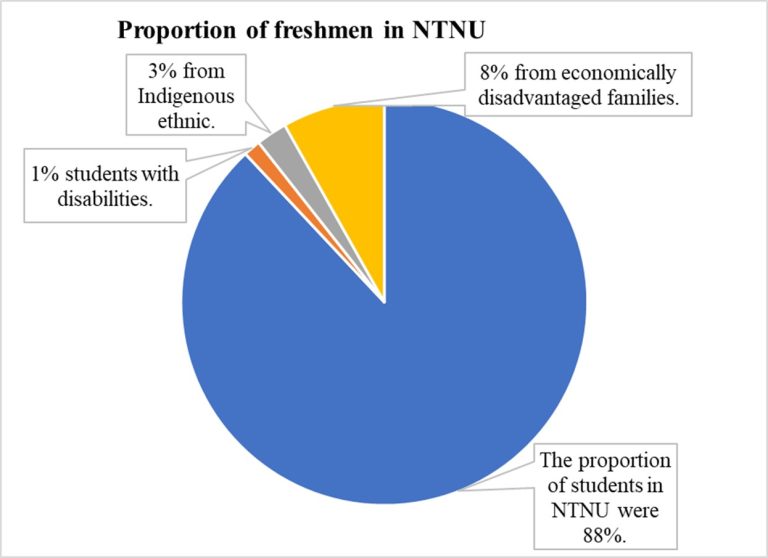
1.3.2 Bottom financial quintile student success
The University provides various forms of academic support for economically and culturally disadvantaged students to bridge learning resource gaps and enable their successful completion of studies.
1. Morning Light Academic Support Program: Led by the Teaching Development Center, the ‘Morning Light Program’ offers free academic tutoring and pairs students with senior mentors for one-on-one guidance to help economically and culturally disadvantaged students overcome educational challenges.
2. Secondhand Textbook Resource: The university library collects used textbooks for economically disadvantaged students to borrow first, helping close the resource gap for those unable to access sufficient learning materials from home.
3. Dream Building Learning Program: This program provides courses in career development, life skills, and academics designed explicitly for economically disadvantaged students. Upon completion, students receive scholarships to support their living expenses, enhancing adaptability and facilitating future exploration.
4. Counseling Network: A comprehensive support network involving various university units, departments, academic and career mentors, dedicated advisors, the Student Counseling Center, Special Education Center, and Teaching Development Center provides close guidance for students’ well-being and learning. When students face sudden family or financial difficulties, this support network initiates intervention to prevent interruptions such as withdrawal or leave of absence due to economic challenges.
In 2023, 78 graduates from middle—and low-income households, 63 graduates with disabilities, and Indigenous peoples totaled 141 people.
1.3.3 Low-income student support
The University provides extensive support for economically and culturally disadvantaged students to ensure a secure living environment on campus.
1. Students from low-income, middle-low-income, and particular circumstances households receive waived registration and co-pay fees for medical services, discounted dormitory fees, and NT$1,000 in convenience store vouchers, ensuring basic needs are met. The ‘Living Subsidy’ program also supports these students with living expenses. Each semester, 300-330 slots are available (150-200 for summer), providing each student with NT$6,000 monthly in financial assistance. Recipients are required to complete 80 hours of service-learning per semester.
2. The University offers tuition waivers, student loans, need-based scholarships, internal and external scholarships, emergency relief funds, and student group insurance. Students are encouraged to apply actively to prevent financial hardship from impacting their academic progress and quality of life. In 2023, 19,318 grants totaling NT$214,739,238 were awarded.

1.3.4 Bottom financial quintile student support
1. Collaborative Learning Opportunities with External Organizations: The University partners with various enterprises, organizations, and foundations to enhance learning opportunities for economically and culturally disadvantaged students. For example, the Yanxing Taiwan Association offers training and learning experiences to build workplace competitiveness, and the Nitori International Scholarship provides grants for international exchanges and self-directed learning, broadening students’ horizons.
2. Overseas Study Scholarships: The “Studying Abroad Scholarship” and “Morning Light Dream Fulfillment for Overseas Study” programs provide financial support for disadvantaged students (including those from low- and middle-income households, exceptional circumstances or with disabilities) to study abroad. These scholarships aim to enhance economic accessibility and ensure equitable opportunities for disadvantaged students to broaden their international perspectives.
3. Morning Light Academic Support Program: Led by the Teaching Development Center, the ‘Morning Light Program’ offers free academic tutoring and one-on-one mentoring by senior students to economically and culturally disadvantaged students, helping them overcome educational challenges.
4. Dream-Building Learning Program: This program includes courses in career development, personal growth, and academic skills, such as career workshops, English tutoring, Indigenous cultural sessions, self-study groups, and outdoor experiential education. These diverse learning opportunities allow economically disadvantaged students to better adapt to campus life and explore future paths. In 2023, the program supported 454 student participants, with a total funding of NT$5.49 million in scholarships.
The total amount and number of subsidies provided by the external resources in the 2022 academic year.
Yanxing Taiwan Association | Nitori International Scholarship | |
Number of subsidies | 16 | 5 |
Total amount | 160,000 | 500,000 |
1.3.5 Low or lower-middle income countries student support
1. International Affairs offers the Ministry of Education Scholarship for Overseas Chinese Students from Low-Income Families, which supports financially disadvantaged overseas Chinese students. In 2023, this scholarship benefited 692 recipients with NT$3,696,000.
2. The Academy of Preparatory Program for Overseas Chinese Students provides scholarships and bursaries for overseas Chinese students to encourage students to study hard. In the 2022 academic year, 315 outstanding overseas Chinese students benefited, and a total of NT$9,377,464 was awarded. It also gives the Learning Assistance Scholarship to financially disadvantaged overseas Chinese and international students, supporting them in on-campus learning and service opportunities. In the 2022-2023 academic year, 105 students benefited, receiving NT$1,980,000 in assistance.
1.4.1 Local start-up assistance
1. The University’s social responsibility project, Global-Local Approach to Kinmen Local Revitalization and Youth Empowerment, engages with village communities across Kinmen to uncover unique local cultural elements. Through workshops and regeneration guidance activities, the project preserves and promotes these cultural characteristics across generations, fostering sustainable development of local industries and bridging generational gaps.
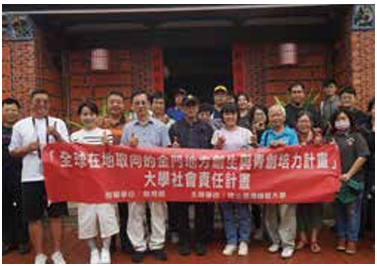
2. Enhancing Environmental Awareness Among Watershed Residents and Assisting Regional Development Plans, led by Professor Tzuchau Chang, director of the Center for Sustainable Development, focuses on environmental awareness and community development within Taipei’s watershed protection area. The project hosts workshops and educational activities to address educational disadvantages among watershed residents and support regional growth. The initiative also encourages local youth to develop a sense of environmental stewardship and assists communities in advancing local initiatives.
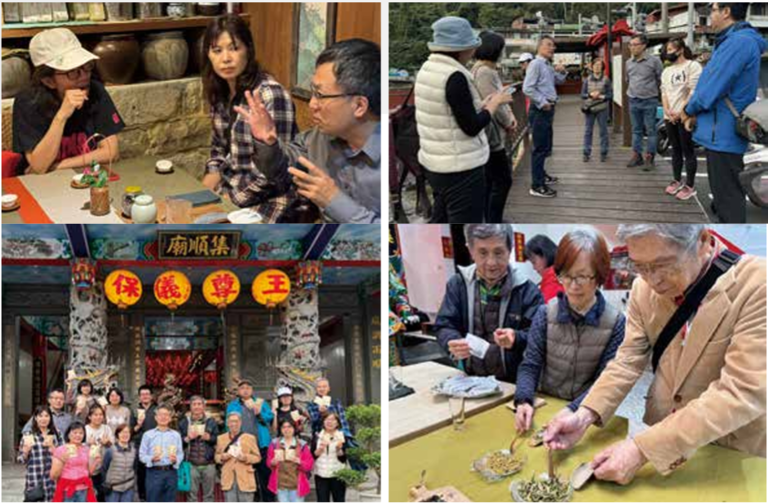
1.4.2 Local start-up financial assistance
1. As approved by NTNU’s Innovation and Incubation Center, Neo Power Technologies is the first university-derived new startup company promoting the development of smart control and electric vehicles and implementing the spirit of green energy sustainability.
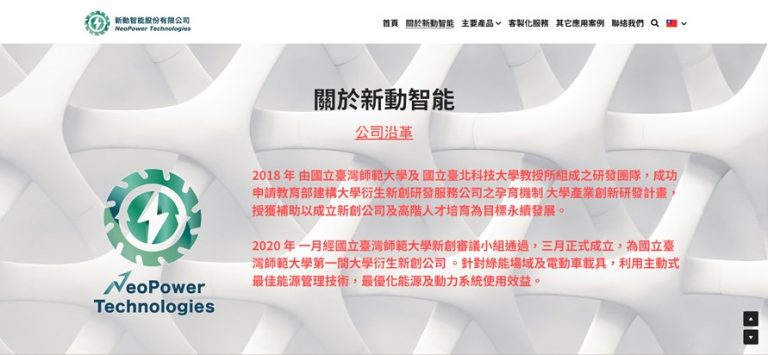
2. International Numeracy Sense Education Co. is NTNU’s first spin-off education start-up. To promote mathematics education, it not only provides multimedia scientific knowledge and popular science articles and videos but also organizes many camps for elementary and junior high school students in an Innovative, diverse, and life-oriented way to be a distinctive feature. Associate Prof. Lai of the Department of Electrical Engineering of NTNU said that he hopes that students can develop their interest in mathematics and reduce their fear of mathematics through this activity.

1.4.3 Programmes for services access
1. The University prioritizes essential services for older people through two key projects: Digital Inclusion and Smart Health Academy for Seniors and Ecosystem-Based Psychological Counseling for Elderly Care. The first project integrates smart diagnostic technology to empower seniors to manage their health independently. The second project provides psychological counseling, health education, and wellness resources for elderly individuals in low socioeconomic and resource-limited conditions, fostering a more age-friendly society.

2. El Menahil International School in Turkey has been providing education to Syrian refugees since 2015. In 2023, Tzu Chi International Youth Association cooperated with National Taiwan Normal University and Tzu Chi University to promote the “El Menahil Promise” project and recruit young people to use the innovative platform Teaching Chinese to students. From July 27 to August 6, 2023, 15 Taiwanese study companions went to Turkey to cross-culturally communicate, and more teaching content will be provided in the future.
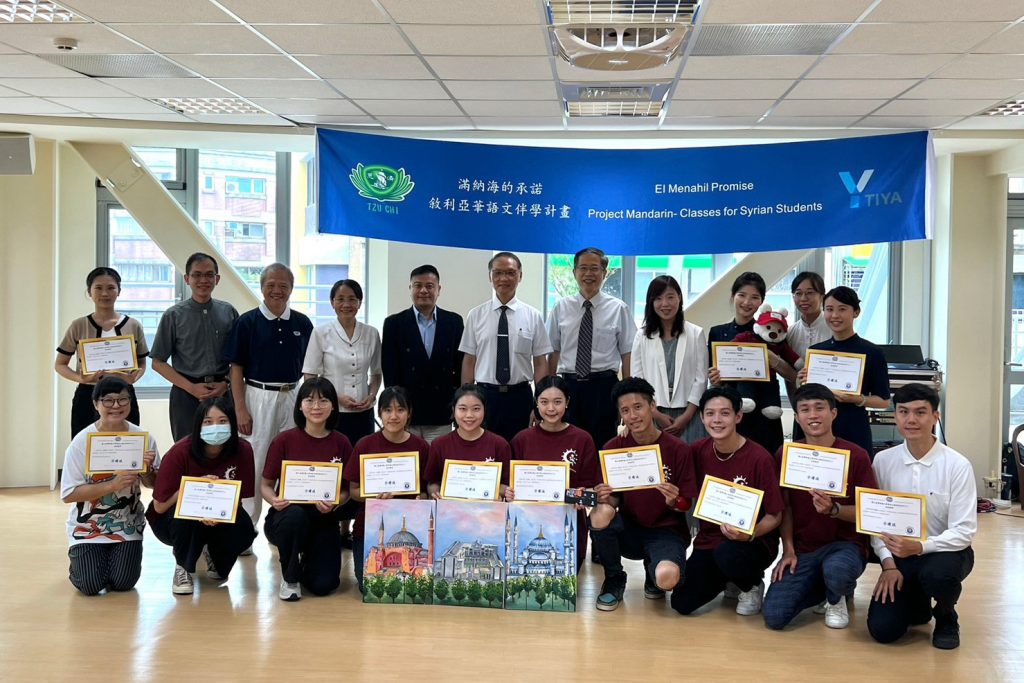
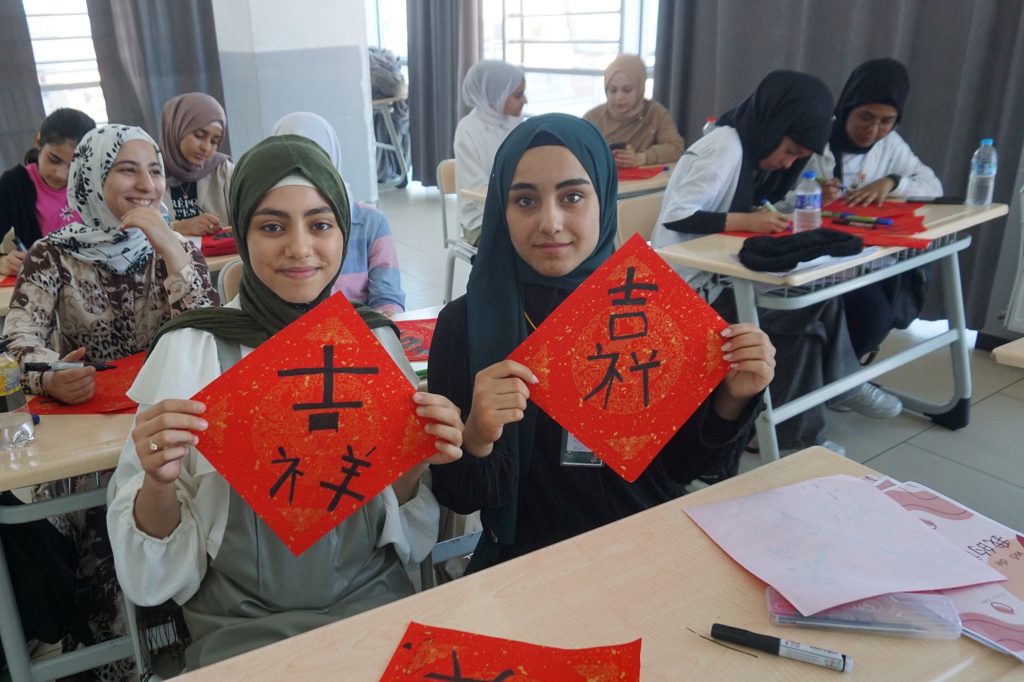
El Menahil Promise’s group of Taiwan and activities figures.
1.4.4 Policy addressing poverty
1. The NTNU is directly involved in national concerns about the quality of education in rural areas. The university has cooperated with the Ministry of Education to implement the PASSION Program – an Enhancing Program for Rural Students, which adopts the “Adaptive Diagnosis, Screening, and Diversion Mechanism” to track students’ long-term academic development. The program provides tailored teaching materials and assists teachers in improving teaching quality through capacity-building workshops, intensive observation sessions, and subject exchanges. In 2023, the program diagnosed 3,103 students and offered 352 foundational Chinese, English, and mathematics classes, serving 2,217 students. Additionally, 331 teachers were empowered through training. The PASSION foundational teaching module has been extended from supportive courses to daytime classes, enhancing the overall teaching effectiveness of partner schools in rural areas.
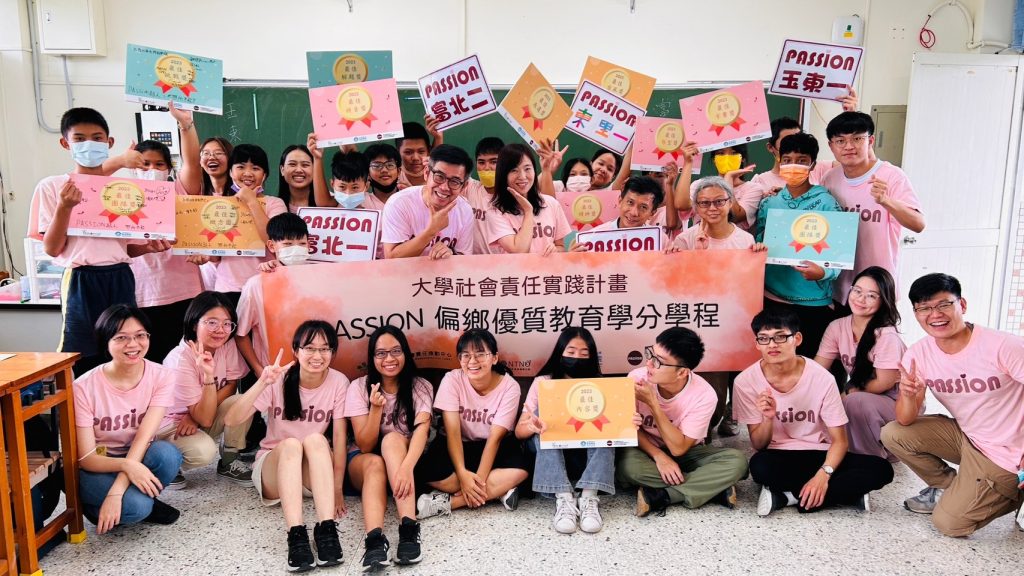
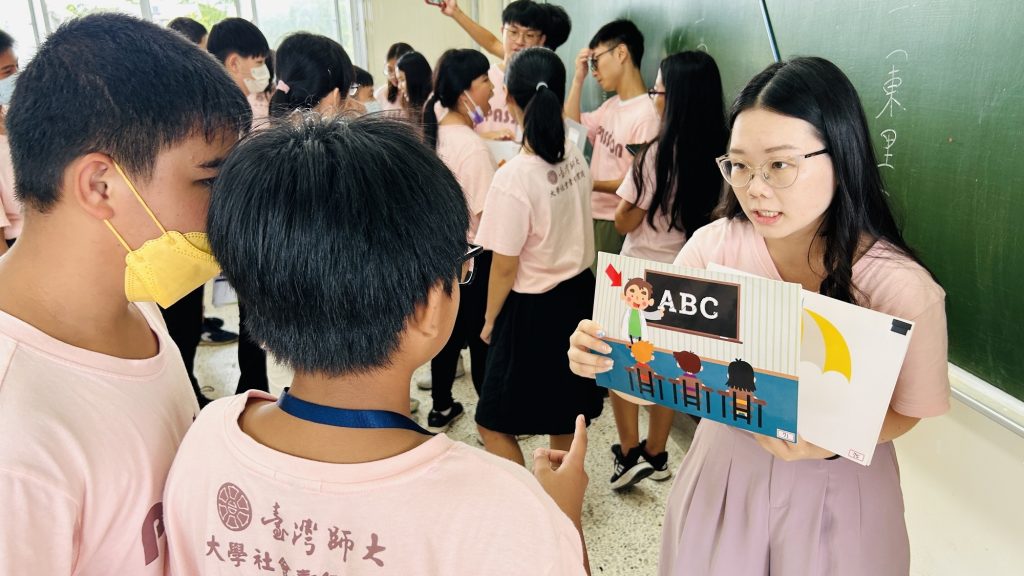
2. The 2023 Joint Annual Conference of Educational Academic Groups of the Republic of China was held at NTNU, bringing together experts in Taiwan’s education sector to discuss pressing challenges. This year’s conference focused on the impact of the COVID-19 pandemic on teacher supply and demand. The recommendations presented at the meeting serve as valuable references for education policy planning and revision.
及前教育部長吳清基(左一)出席表達重視。-768x512.jpg)

